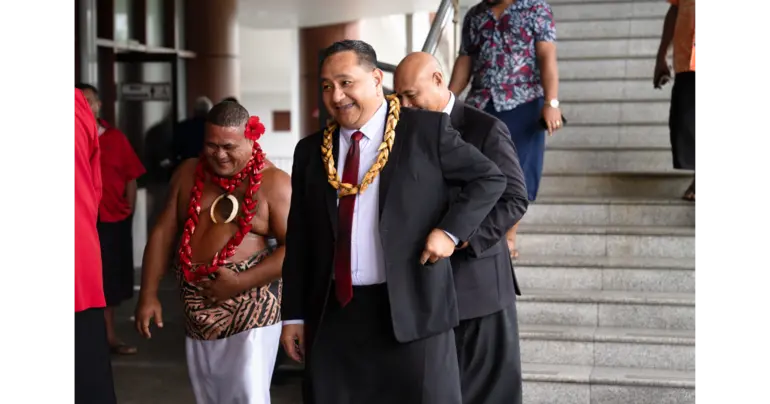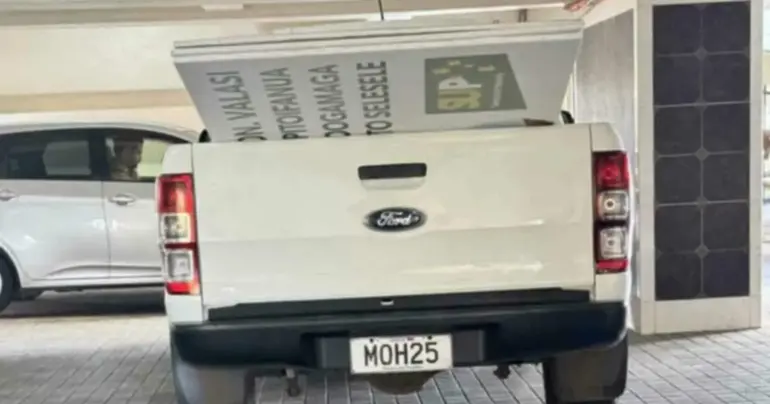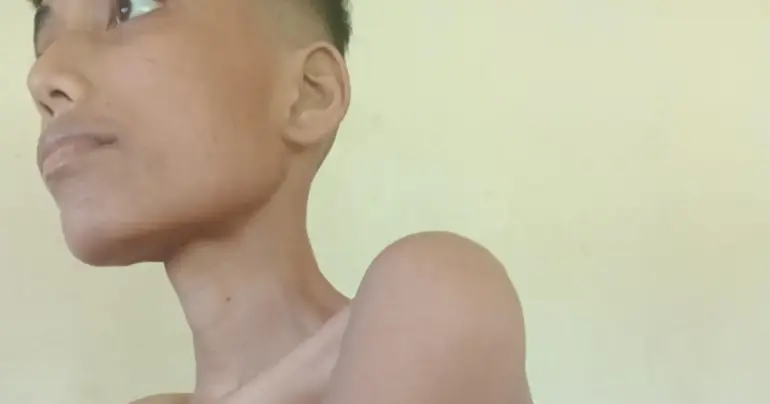Persons with disabilities work on specialist programme
 By Talaia Mika
•
22 November 2020, 5:00AM
By Talaia Mika
•
22 November 2020, 5:00AM
People living with disability are leading the way in the designing of Samoa’s first social protection programme that specifically focuses on them.
At the height of the COVID-19 global pandemic around June this year, the opportunity to develop the country’s first “social protection programme for persons with disabilities”, was introduced through UNESCO's participation in a UN Joint Program.
The UN Joint Program is titled “Strengthening resilience of Pacific Island States through Universal Social Protection.”
During the initial planning of the Joint Program, the Disability Reference Group [D.R.G.] was established through the election of representatives of the disability community by disability service providers and stakeholders.
As the group comprised persons with diverse disabilities, gender, age and geographic location, the reference group did its best to represent the diversity of the disability community.
Suria Apulu, 32, of Faleasi’u and Herbert Bell, 34, of Vaiala were elected by disability stakeholders as members of the newly formed D.R.G.
Both Apulu and Bell are born with a disability and are strong advocates of the disability movement in Samoa.
Working with the D.R.G., Apulu and Bell hope to fulfil their aspirations to improve the lives of persons with disability by assisting them to realise their human rights.
Apulu, who was born prematurely with a physical disability, says she has high hopes that one day Samoa will have a sustainable social protection system that will “reach all ages and genders of persons with disability.”
Being totally blind Bell is reliant on taxis as the public transport system is difficult to navigate and can spend over $80 Tala a week on transport just to access essential services that he requires.
Bell says if a social security benefit were introduced it could ease the cost of transport and health care and he could then use his income to do more Samoan things like Fa’alavelave and help the extended family as well.
Mataafa Faatino Utumapu – who chairs the D.R.G. and is the General Manager of Nuanua o le Alofs [N.O.L.A.] and the National Advocacy Organisation for Persons with Disabilities in Samoa – hopes the introduction of a social security benefit would help others in society see the “contribution that persons with disabilities can make to society if given the opportunity or when systems are in place.”
“The formulation of the disability reference group to serve as the advisory body for the implementation of the Pilot Project is a huge step in the right direction,” she said.
“It really shows a strong commitment to remain true to the concept of nothing about persons with disabilities without their full and active participation and inclusion.”
The D.R.G. has been tasked with the responsibility of advocating for inclusivity within the Joint Program and is composed solely of persons with diverse disabilities.The N.O.L.A. together with the D.R.G. will play a key role advocating for the rights of persons with disabilities.
In a statement issued in partnership with the Governments of Samoa, Tokelau, Niue and Cook Islands, the United Nations Country Team initiated the Joint Programme on Social Protection in early 2020.
“Five United Nations agencies including UNESCO, UNDP, ILO, ESCAP and UNICEF will work with stakeholders across the four PICTS from government, civil society and private sector to implement the activities of the Joint Programme on Social Protection,” reads the statement issued.
“The Joint SDG fund, supported by UN Member States, international organisations, the private sector and individual philanthropists, has allocated approximately $3 million USD to the Joint Programme on Social Protection across the four PICTS.
“The programme aims to assist the Governments of the four PICTs develop evidence based, nationally owned Social Protection systems that are financially sustainable to accelerate progress of the Sustainable Development Goals through integrated programming in national and sub-national development.
“This is to ensure an inclusive approach to sustainable development in line with the UN 2030 Agenda and commitment to Leave No One Behind.”
 By Talaia Mika
•
22 November 2020, 5:00AM
By Talaia Mika
•
22 November 2020, 5:00AM











